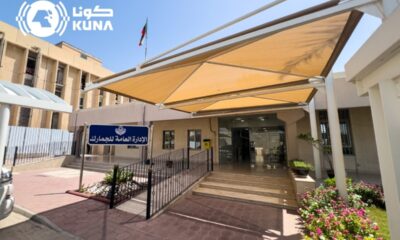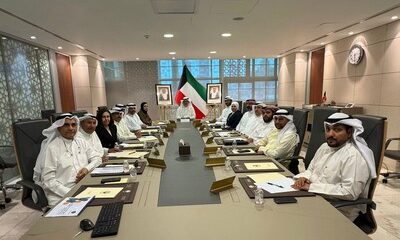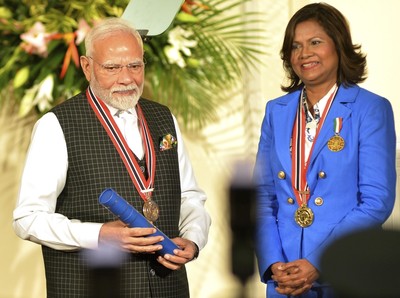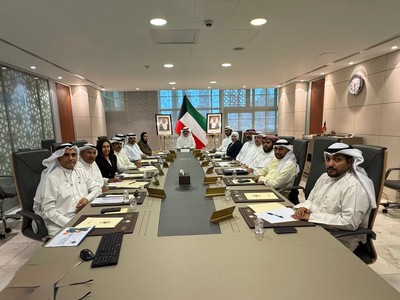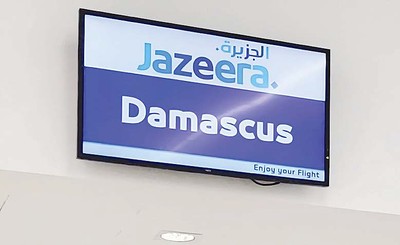KUWAIT CITY, April 13: A senior executive at Visa has praised Kuwait for its significant strides in building a secure and advanced digital environment. Speaking to the Kuwait News Agency (KUNA) on Sunday, Charles Lobo, Senior Vice President and Regional Risk Officer for Central and Eastern Europe, the Middle East, and Africa (CEMEA) at Visa, highlighted the country’s progress in securing its digital payment systems.
Lobo noted that the Central Bank of Kuwait (CBK) has played a pivotal role by enforcing stringent regulatory guidelines for digital payments. These regulations ensure proper governance, risk management, cybersecurity, and customer protection, contributing to a robust digital infrastructure that enhances trust in electronic transactions and aligns with global best practices.
He emphasized that Kuwait’s digital transformation strategy is a key pillar of its sustainable development, particularly in driving growth in the digital economy. The payments sector in the country, he added, is rapidly evolving due to rising consumer demand and the government’s cashless agenda.
Referring to Visa’s recent “Stay Secure” study, Lobo revealed that 8 in 10 consumers in Kuwait trust digital payments and intend to use them more frequently in the future. He also highlighted that Kuwait leads the Gulf Cooperation Council (GCC) countries in digital payment adoption, with a 92% tokenization rate and a 99% contactless payment usage rate—indicators of strong consumer confidence and growing retailer engagement.
Lobo commended the collaboration between Kuwait’s public and private sectors in the digital payments space. He stressed that this cooperation is essential for Kuwait to maintain its global leadership in financial technology and innovation.
The “Stay Secure” study further revealed that 94% of Kuwaiti consumers take active steps to secure their payments. Additionally, 53% refuse requests to transfer money on behalf of others via email and avoid sharing card or account details. Around 40% have activated SMS alerts to monitor account activity.
Despite high awareness levels, challenges persist. According to the study, 44% of consumers have experienced fraud, and 14% have been victims of multiple incidents. However, 91% of consumers reported feeling safer when transactions require identity verification codes, and 55% said they prefer clear security icons—signaling the continued need for consumer education and awareness.
Lobo reaffirmed Visa’s strong presence and collaborative efforts in Kuwait’s payments ecosystem. The company works closely with the government, CBK, banks, and fintech firms to implement stringent security standards and support fraud prevention initiatives. Visa is also partnering with the Kuwait Banking Association to launch consumer awareness campaigns and promote secure payment practices.
In addition, Visa is enhancing its partnerships with banks to integrate artificial intelligence in fraud detection and provide safer, more secure payment solutions, especially in the retail sector. Lobo highlighted the company’s advocacy for contactless payments and digital wallets as part of a seamless, modern payment experience.
He underscored Visa’s commitment to cybersecurity, noting that the company has invested over $10 billion globally in the last five years to strengthen digital payment systems. This includes the use of CyberSource, a secure payment platform based on tokenization that replaces sensitive card data with unique identifiers. Since its acquisition in 2010, CyberSource has helped safeguard $40 billion in e-commerce revenue and prevent $650 million in fraud.

 Politics19 hours ago
Politics19 hours ago
 Politics22 hours ago
Politics22 hours ago
 Politics21 hours ago
Politics21 hours ago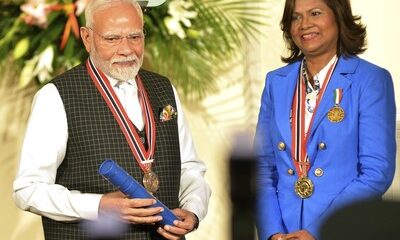
 Business9 hours ago
Business9 hours ago
 Latest News1 hour ago
Latest News1 hour ago
 Latest News4 minutes ago
Latest News4 minutes ago




